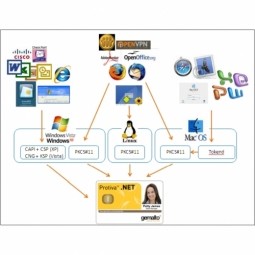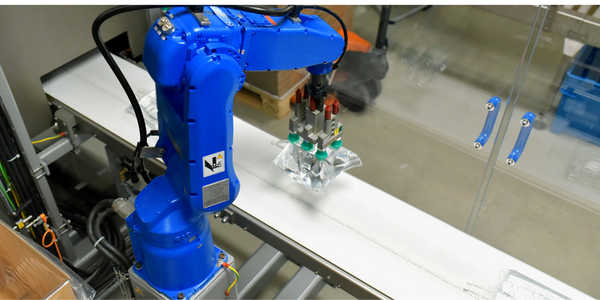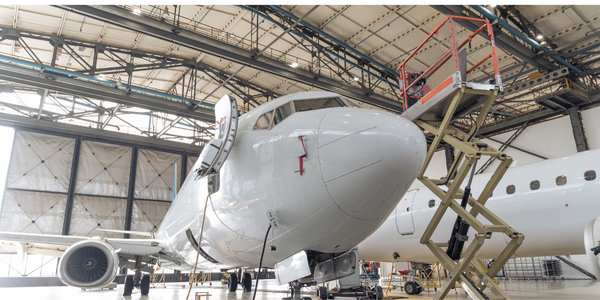Innovating scientific instruments with SolidWorks software
公司规模
Large Corporate
产品
- SolidWorks Professional
- SolidWorks Flow Simulation
- SolidWorks Simulation
- SolidWorks PDM
- Inventor
技术栈
- 3D CAD
- PDM
- CFD
- Design Analysis Tools
实施规模
- Enterprise-wide Deployment
影响指标
- Productivity Improvements
- Cost Savings
- Customer Satisfaction
技术
- 功能应用 - 产品生命周期管理系统 (PLM)
- 功能应用 - 计算机化维护管理系统 (CMMS)
- 分析与建模 - 预测分析
适用行业
- 生命科学
适用功能
- 产品研发
- 质量保证
服务
- 软件设计与工程服务
- 系统集成
关于客户
Varian, Inc. is a leading supplier of scientific instruments and vacuum technologies for life-science and industrial applications. The company operates several product development and manufacturing facilities worldwide. Varian's product portfolio includes a wide range of advanced scientific instruments used in various industries, including life sciences, industrial applications, and research. The company is known for its innovative solutions and commitment to quality, which has made it a trusted name in the scientific community. Varian's products are used by researchers, scientists, and engineers to conduct critical experiments, develop new technologies, and improve existing processes. The company's dedication to innovation and excellence has driven its growth and success in the competitive field of scientific instrumentation.
挑战
As a leading supplier of scientific instruments and vacuum technologies for life-science and industrial applications, Varian, Inc., faced the challenge of having no standard CAD platform across its product development and manufacturing facilities worldwide. This lack of standardization led to inefficiencies, increased costs, and difficulties in collaboration. Following a corporate reorganization in 2000, the new CEO set a goal to bring all Varian product design groups onto the same CAD platform to streamline processes, increase productivity, and foster collaboration. The task of standardizing on a single CAD system was assigned to Layne Howard, who was then the manager of Varian MRI Systems Mechanical Engineering and Design Group. The team evaluated several CAD systems, including AutoCAD, Mechanical Desktop, Autodesk Inventor, CADKEY, Pro/ENGINEER, and SolidWorks software. Despite initial resistance and concerns from the team, the evaluation process revealed that SolidWorks software was significantly ahead in terms of capabilities compared to other options.
解决方案
Varian chose to standardize on SolidWorks Professional, installing 110 seats companywide due to its ease of use, value, data compatibility, integration with SolidWorks product data management (PDM) software, and advanced surfacing and sheet-metal design capabilities. The decision was based on a thorough evaluation process that included software demonstrations tailored to Varian’s product design needs. The team found that SolidWorks software was significantly more capable than other options, including Autodesk Inventor. The implementation of SolidWorks Professional allowed Varian to streamline its design processes, increase productivity, and foster better collaboration across its global enterprise. The integration of SolidWorks PDM and design analysis tools further enhanced Varian's capabilities, allowing the company to manage design files more efficiently and perform advanced design-performance analysis and simulation. The transition to SolidWorks Professional also improved Varian's surfacing and sheet-metal design capabilities, which are critical to its product design needs. The company added a super floating license of integrated SolidWorks Flow Simulation computational fluid dynamics (CFD) and SolidWorks Simulation analysis software, providing additional design-performance analysis and simulation capabilities.
运营影响
数量效益

Case Study missing?
Start adding your own!
Register with your work email and create a new case study profile for your business.
相关案例.

Case Study
Corporate Identity Solution Adds Convenience to Beckman Coulter
Beckman Coulter wanted to implement a single factor solution for physical and remote logical access to corporate network. Bechman Coulter's users were carrying smart card badges for doors, but also needed a one-time password token to access to our corporate network when they were not in the office. They wanted to simplify the process.

Case Study
Embracing Business Success in Real Time
· Increase control over growing Big Data to improve business decisions · Manage data for 28,000 biotechnology stockkeeping units in the fields of microbiology, molecular biology, animal cell cultures, plant tissue cultures, and lab ware for laboratory chemicals · Accelerate report generation and analysis with real-time data

Case Study
Flow Robotics: Scaling Up Production and Accelerating Product Development with IoT
Flow Robotics, a Danish manufacturer, developed flowbot™ ONE pipetting robots to alleviate the strain on bioanalysts in life-science laboratories and hospitals across Europe. These robots were designed to automate part of the testing process, speeding up the time it takes to produce results and reducing pressure on staff. However, the company faced challenges in scaling up production and accelerating product development. High workloads and physically challenging conditions have long been an issue for laboratory professionals. Flow Robotics estimates that around half of medical lab technicians carry out the same arm movements for at least a quarter of their working day. The American Society for Clinical Pathology reported that 85% of laboratory professionals feel burnt out; 36% struggle with inadequate staffing; and 32% face a heavy workload and pressure to complete all testing on time.

Case Study
Revolutionizing Aerospace Industry with 3D Printing: A 63% Lighter Titanium Part
GE Aviation, a renowned name in the aerospace industry, recognized the potential of 3D printing technology in transforming the sector. The primary challenge was to reduce the weight of the aerospace parts, which would directly impact the fuel costs. A lighter airplane would mean lower fuel consumption, leading to cost savings and a smaller carbon footprint. However, achieving this weight reduction without compromising the strength and functionality of the parts was a significant challenge. Traditional manufacturing methods were not able to provide the desired weight reduction while maintaining the required stiffness and strength of the parts. The challenge was to find a solution that could create strong, light, and functional aerospace parts.
Case Study
Material Intelligence at Ethicon: Sustaining Medical Device Manufacturability and Improving Patient Care
Ethicon, a world-class medical devices company, faced several challenges in its operations. The rapid selection of manufacturing materials compliant in global markets was critical to assure patients, practitioners, and purchasing organizations of the biocompatibility of their medical devices. Ensuring supply chain continuity and minimizing risks of obsolescence for medical devices due to regulatory changes were also crucial in meeting Ethicon’s ongoing commitment to maintaining patient care. Furthermore, the engineers at Ethicon were developing the next generation of medical devices and needed to access historical material data to accelerate new product development. The process of centralizing and digitalizing its materials information was a significant challenge that Ethicon needed to overcome.
Case Study
IWT's Transformation: Customizing with Efficiency in IoT
IWT, a company specializing in the design, manufacture, and installation of washing systems for the life sciences and pharmaceutical industries, faced a significant challenge in managing its wide product portfolio. The company manufactures 45 different models, 60% of which are customized to some degree. This high level of customization, combined with limited production quantities, necessitated a controlled process for managing the release of engineering changes. The goal was to achieve efficiency, reduce process time, and better coordinate production throughout the organization. The need for strict compliance in heavily regulated industries further complicated the situation. IWT's existing PLM journey with Dassault Systèmes’ SOLIDWORKS for 3D CAD and Enovia for managing CAD data and Bills of Materials (BOMs) was proving inadequate. The system had limited part classification, no workflow, and no tool to ensure data consistency. The management of non-CAD documents was also a challenge, with information often difficult to find and access.


